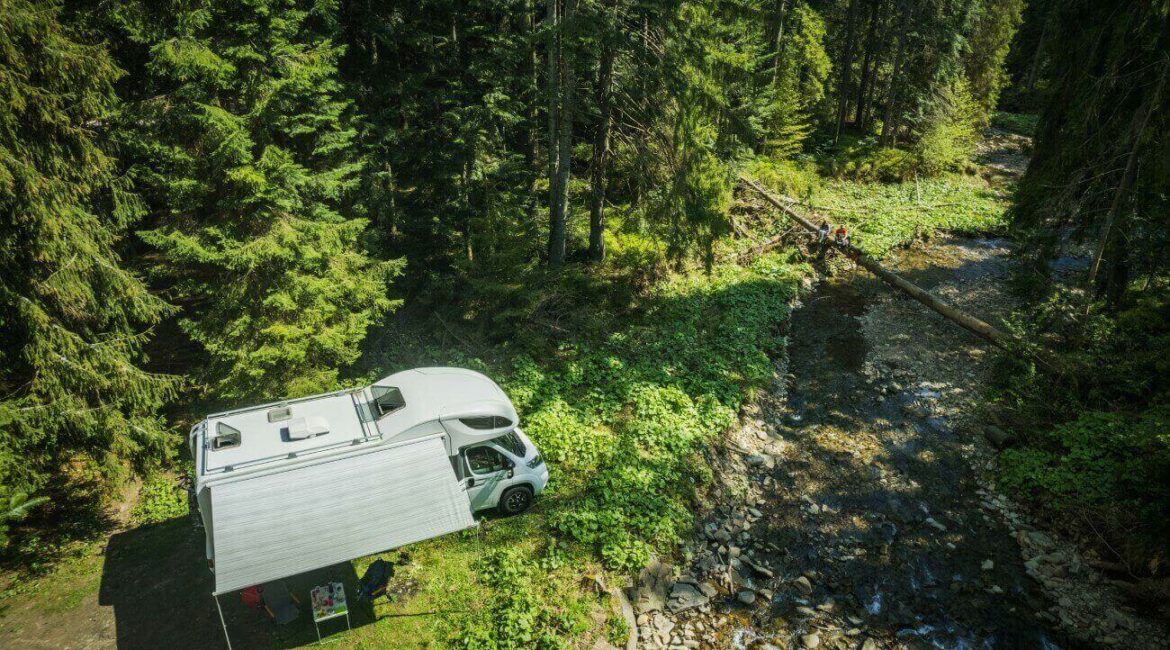Winterizing your RV is an essential task, and a crucial part of this process involves ensuring that all water is removed from your RV’s lines. Leaving water in these lines during freezing temperatures can lead to significant damage, as water expands when it freezes. This expansion can cause cracks or bursts in your pipes, leading to costly repairs. If you’re looking to save yourself the headache and keep your RV in top condition, blowing out the water from your lines is a step you don’t want to skip.
The Right Tools Make All the Difference
Before you start, gather all necessary tools. Your best friend in this task is an air compressor. It’s the tool that will push the water out of your RV’s lines. However, be cautious about the pressure settings. Setting it too high can damage your RV’s plumbing. Typically, a pressure of 30-40 psi is safe and effective. Along with the compressor, you’ll need a blowout plug to attach to the city water inlet and make the process smooth. Remember, using the right tools not only makes the task easier but also ensures that you’re doing it safely.
Step-by-Step: Safely Blowing Out Your RV’s Water Lines
- Disconnect from External Water Sources: Before you start, ensure that your RV is disconnected from any external water sources.
- Open All Faucets: Turn on all the faucets, both hot and cold, in your RV. This includes the shower and the toilet valve.
- Connect the Air Compressor: Using the blowout plug, connect your air compressor to the city water inlet.
- Let the Air Flow: Turn on the air compressor and let it push the water out of the open faucets. You’ll see water spurt out initially, which will eventually turn to a mere trickle.
- Close Faucets: Once all the water is blown out, and only air is coming out of the faucets, turn off the compressor and close all the taps.
- Final Touch: It’s a good practice to pour some RV antifreeze down each drain to ensure that the drain traps are protected against freezing.
FAQ : Blowing Water Out of RV Lines Safely
Can I use any air compressor for this task?
- A: Ideally, you should use an oil-less air compressor to prevent any oil contaminants from entering your RV’s water system.
How often should I blow out my RV lines?
- A: It’s essential to blow out your RV lines before any period of extended disuse, especially during freezing temperatures. So, typically once a year before winter is a good practice.
Is blowing out water lines the only step in winterizing my RV?
- A: No, it’s one of the critical steps. However, there are other steps, like ensuring your water heater is drained and adding antifreeze to the plumbing system.
What if I don’t have an air compressor?
- A: If you don’t own one, consider renting from a local tool rental shop. The investment is worth avoiding potential damages to your RV.
Can I damage my RV’s plumbing with an air compressor?
- A: Yes, if the pressure is set too high. Always ensure it’s between 30-40 psi to avoid causing any harm.
Understanding the Importance of De-winterizing
Once the cold months have passed, and spring beckons, it’s not just about getting your RV back on the road; it’s about properly de-winterizing it. De-winterizing involves reversing the steps you took to winterize your RV, including flushing out the antifreeze, checking for any leaks, and ensuring that all appliances are functioning correctly. Skipping this crucial step or doing it haphazardly might lead to problems down the road. Before setting off on your first warm-weather journey, always ensure that you’ve carefully and methodically brought your RV back to its regular operational state.
Water Filter Replacement: Often Overlooked
Your RV’s water system isn’t just about the pipes and tanks; the water filter plays an essential role, too. When you winterize, especially if you use antifreeze, it’s recommended to remove the water filter to prevent it from damage. But come spring, or when preparing for a long trip, remember to replace it. Regularly changing your water filter ensures you have clean, safe drinking water on your travels. It’s a small step with significant benefits for your health.
Maintenance Checks After Blowing Out Lines
After you’ve blown out the water from your RV lines, it’s a golden opportunity to perform some essential maintenance checks. Examine your pipes and fittings for signs of wear, tear, or potential leaks. Even if everything seemed fine when you were blowing out the water, physical inspections can often catch small issues before they become major headaches. This proactive approach means less time spent on repairs and more time enjoying the open road.
Potential Pitfalls: What Not to Do
While the process of blowing out your RV lines can be straightforward, there are mistakes that many RV owners, especially newcomers, tend to make. One common error is forgetting to empty the water heater, which can lead to significant freezing damage. Another is neglecting to use RV antifreeze after blowing out the lines. Simply put, while air can remove most of the water, it often doesn’t get it all. The antifreeze ensures that any remaining water won’t freeze and cause damage. Always stay informed and avoid cutting corners.
Investing in Proper Equipment: Why It Pays Off
Though it might be tempting to save a few bucks by opting for cheaper tools or deciding to “make do” with what you have, investing in quality equipment tailored for RV maintenance can save you money in the long run. High-quality blowout plugs, reliable air compressors, and proper antifreeze can mean the difference between a job well done and potential damage to your RV. Think of these tools as an investment in your RV’s longevity and your peace of mind.
Remember, every step you take to maintain your RV not only ensures the safety and efficiency of your vehicle but also contributes to countless smooth-sailing adventures ahead! Safe and happy travels!
- A Chat with Nate and Mika, Christian Wedding Photographers - July 18, 2024
- Ultimate Guide To Playing Online Casinos - May 27, 2024
- Addiction Recovery Books Worth Reading - January 24, 2024









